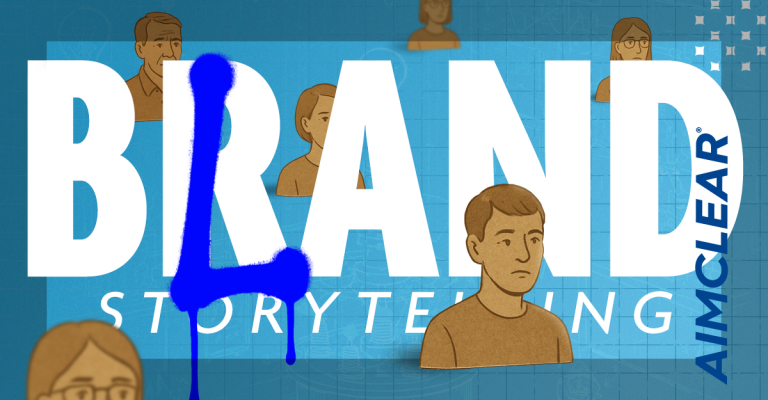Welcome back to AIMCLEAR‘s coverage of #BlueGlassFL. With all that is shiny and new in the world of search marketing– advances in SEO, social media, mobile and the like– is there any real point to something as “old school” as the buying and selling of domain names? The afternoon panel discussion with Chad Folkening, Co-founder DomainHoldings, Andrew Beckman, CEO Location3 Media, John Andrews, competitive web consultant, and Monte Cahn, President Moniker.com and SnapNames was a convincing argument that domaining is “in” as ever, & still tremendously worthwhile. AIMCLEAR live-tweeted coverage of this eye-opening session… read on for full coverage.
Monte kicked things off by emphasizing the bold advantage of proper domaining: “The value of ownership of a domain is just that, OWNERSHIP. The content is your property.”
From there, the hot topics to be discussed by the panel were laid out:
- Trends in domain buying/selling
- Power of exact match domain
- Best methods for finding domains
- Getting the most out of domains you own
Think registering domains is a fading trend? Think again. In the second quarter of 2010 alone, over 196.3 million top level domains were registered. The most highly sought after domain names are priced at the multi-million dollar level (for instance, with millions of queries per day for keywords like “sex” and “porn,” it’s easy to see why domains like sex.com and porn.com are two of the three most expensive domain sales in 2010)– but there are still plenty of great names available at bargains rate in the hundreds of dollars range.
So, what is the importance of exact match domain names (like sex.com)…?
John Andrews pointed out that exact match domain is crucial to search, but it’s a combination of the domain name and anchor text. So, even if your domain is hyphenated, it can still rank well. Exact match is optimal because there seems to be a bonus that exists in Google for domains without the dashes. An exact match domain increases the likelihood that the anchor text of links will include your target terms.
The fundamentals of link building is the core of the domain name game, continued Andrew Beckman. An exact match domain name is ideal to get laser-targeted anchor text links.
Chad Folkening added that exact match domains help you work smarter rather than harder. The best plan of action, Chad argued, is to own both exact match and hyphenated names. Owning all the variations allows you to protect your assets and brand, and prevents others from stealing your thunder.
“We are followers, end users. We follow the path of the current match.” – Chad Folkening
Andrew agreed– locking down your brand name is a wise reputation management play. Chad also reminded attendees that competition for .com domains is a global battle. Businesses in Europe and Asia want the attention of consumers in the US. However, the global market also represents opportunity when it comes to domain ownership in the form of greater demand for your domain.
Monte reminded attendees of the importance of registering those domain variations early on in the name development process. Big companies are still slipping up on this one. For instance, Apple does not own iPad.com. #Facepalm.
Another Monte tip: register the common misspellings of your domain name. No one’s perfect… typos happen. Help your potential customers find you regardless of their keyboard skillz.
Next on the agenda was a discussion of strategies for placing value on a domain name.
As John pointed out, “It’s worth it to save yourself the time and spend the extra money on that exact match in the aftermarket.” All your hard work to build that ranking with a less than perfect match could go up in smoke when someone else is willing to develop that expensive exact match. If the domain represents what you do, you need to own that name. Be prepared to negotiate for domains from squatters, but know what it is truly worth to you.
Analytics are the key to setting a real monitory value of a domain, Andrew continued. Look at the cost per click and search volume when deciding on the value of those high dollar domains. He went on to explain that what you intend to do with your domain will also determine its value to you. Are you going to use it to build a brand or just resell it for cash? Chad, for example, is more into building a brand than merely controlling the asset of the domain name.
Monte next steered the discussion towards best practices of buying/selling domains.
Chad likes to use brokerages for the exposure they give his domains when it’s time to sell. You can also protect yourself from domain scammers. Remember, you don’t OWN a domain name outright… it’s a lease.
“Domaining is hard core business, and it’s fun.” -John Andrews
One bummer of a current trend in domaining is domain theft. The panelists recommended researching the history of a domain in which you’re interested prior to purchase to be sure you’re dealing with the true owner.
Concerning the development of the domain, John continued, the folks that are doing really well are the ones building great content on their domain holdings. “Every time I look at a name, I build an impression of that domain.” Be aware of the impression you are making.
Closing out the discussion, Monte commented that domains are very much like real-estate: some domains are like property along an interstate that are only good for planting a great big sign pointing people to your business, while others are more like prime downtown space worth building a business on. Aim to identify what kind of property you own and how best to use it.
Thanks to the panelists for an in-depth look at domains & acquisition best practices. Stay tuned for more coverage of #BlueGlassFL here in AIMCLEAR Blog and follow along with live-tweet coverage from @mannyrivas (Manny) & me, @SocialMichelleR.










